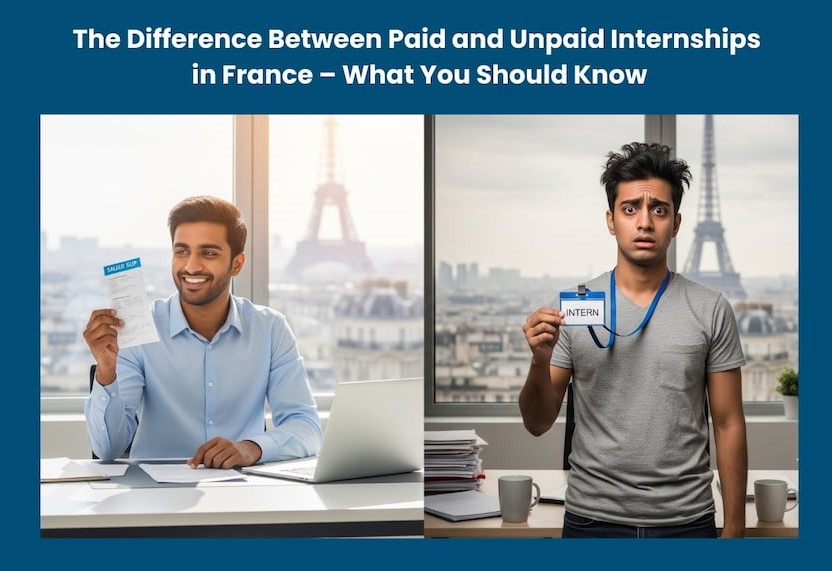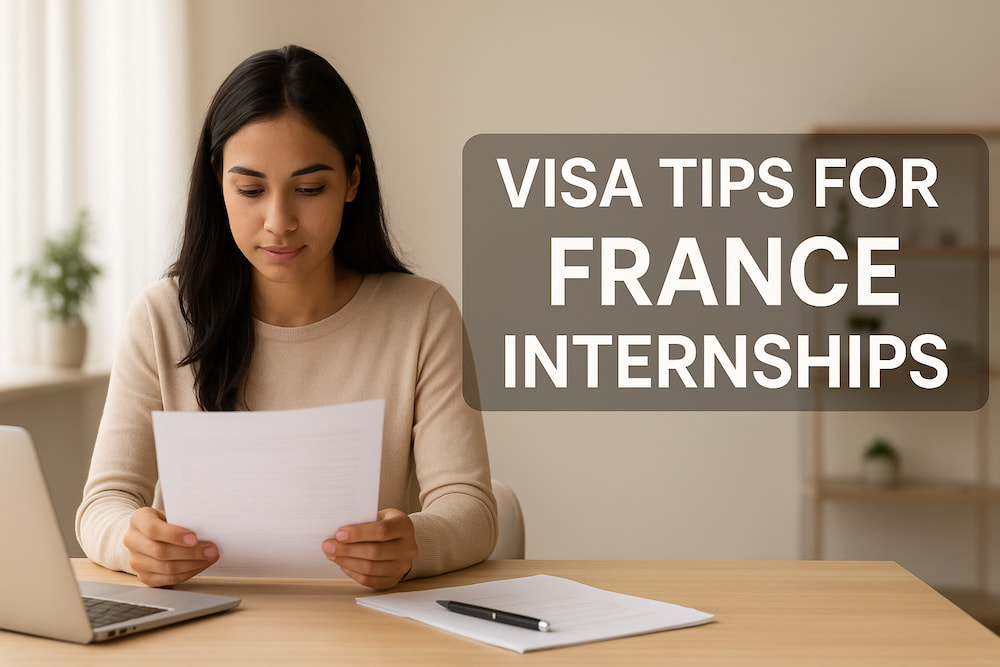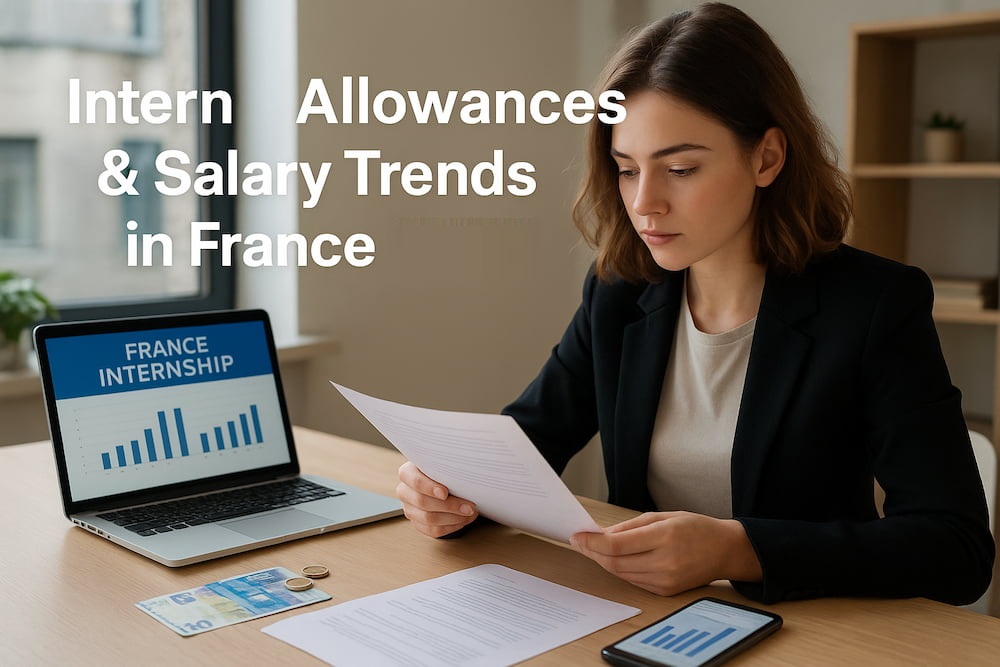
The Difference Between Paid and Unpaid Internships in France – What You Should Know
Dreaming of an internship in France? Picture yourself mastering culinary arts in a Lyon bistro, coding at a Paris tech hub, or styling at a Marseille fashion house. Internships in France offer a gateway to world-class experience, but a big question looms: should you go for paid internships France or consider unpaid internships in France? Each has its perks and pitfalls, shaped by France internship laws and your career goals.
I’ve spoken with interns who’ve navigated both paths—some funded their Parisian adventures with stipends, others built dream networks through unpaid roles. In this 1,500-word guide, we’ll break down the key differences between paid vs unpaid internships, explore legal rules, weigh benefits, and share tips to choose the right option for you. Whether you’re eyeing financial support or portfolio-building, let’s find the internship that fuels your future!
1. Understanding Internships in France
In France, internships (known as stages) are structured experiences for students or recent graduates to gain industry exposure, often tied to academic programs or career exploration. They span fields like hospitality, tech, fashion, and more, offering hands-on learning in a global hub. An intern I met in Bordeaux described her wine marketing internship as a “career-defining” blend of real-world tasks and cultural immersion.
Key Features:
- Duration: Typically 1–6 months, depending on the role and program.
- Purpose: Build skills, networks, and resume strength.
- Regulation: Governed by strict France internship laws to protect interns.
Understanding these basics helps you navigate your options. For more, check this guide to understanding French internships.
2. Legal Rules Around Payment
France internship laws clearly define payment rules, ensuring fairness. Here’s the breakdown, based on 2025 regulations:
- Paid Internships France: Internships exceeding two consecutive months (or 44 working days, even non-consecutive) must provide a stipend, called gratification. The legal minimum is approximately €4.35 per hour (about €600/month for full-time work).
- Unpaid Internships in France: Internships under two months can be unpaid, though some employers offer perks like meals or transport allowances.
An intern in a Paris NGO learned this the hard way when her one-month role offered no pay but invaluable contacts. For details on legal protections, see this guide to French internship regulations.
3. Advantages of Paid Internships in France
Paid internships France are a top choice for many, especially in costly cities like Paris. An intern in a Lyon biotech firm shared how her €650 monthly stipend covered rent, making her experience stress-free.
Benefits:
- Financial Support: Covers living costs like rent, food, or Metro passes.
- Value Recognition: Paid roles signal the company values your work.
- Deeper Engagement: Paid interns often get meatier projects, not just coffee runs.
- Career Boost: Structured roles often lead to job offers, with 50% of Destiny Calling interns receiving work permits.
Paid internships suit those needing financial stability while gaining experience. For more, check this guide to benefits of paid internships.
4. Advantages of Unpaid Internships in France
While less appealing financially, unpaid internships in France have unique perks, especially in niche fields. An intern at a Paris fashion startup took an unpaid role and landed a full-time job through connections made.
Benefits:
- More Opportunities: Creative fields (e.g., NGOs, small agencies) often offer unpaid roles with high-impact exposure.
- Flexibility: Short unpaid internships (1–2 months) fit study breaks or tight schedules.
- Networking Gold: Build relationships with industry leaders, opening future doors.
Unpaid roles suit those prioritizing portfolio growth over immediate income. For insights, see this guide to maximizing unpaid internships.
5. How to Choose Between Paid and Unpaid Internships
Choosing between paid vs unpaid internships depends on your circumstances and goals. An intern I know opted for a paid Toulouse aerospace role to fund her stay but envied the networking her friend gained in an unpaid Paris art gallery internship.
Factors to Consider:
- Financial Needs: Can you afford unpaid work, or do you need a stipend for rent and food?
- Industry Norms: Fashion and NGOs lean unpaid; tech and hospitality often pay.
- Career Goals: Does the internship build critical skills or connections for your field?
- Location: Paris’s high costs (average rent €800/month) favor paid roles, while smaller cities like Bordeaux are more affordable.
For help weighing options, check this guide to choosing the right internship type.
6. Visa Considerations for International Students
Non-EU students face extra hurdles, as France internship laws tie visas to internship type. An intern in Marseille nearly lost her role due to a missing Convention de Stage, a mandatory agreement.
Key Requirements:
- Convention de Stage: Signed by you, the employer, and your university, required for all internships.
- Visa Rules: “Stage” visas cover both paid and unpaid roles but need proof of compliance.
- Payment Documentation: Paid internships may require extra paperwork for stipends.
Start visa processes 2–3 months early. For details, see this guide to internship visa requirements.
7. Finding Paid Internships in France
Securing paid internships France takes strategy. An intern landed a paid role at a Nice hotel by leveraging LinkedIn and a consultancy’s connections.
Search Tips:
- Job Portals: Use Welcome to the Jungle, Indeed France, or APEC for paid listings.
- Network: Connect with HR managers or alumni on LinkedIn.
- Consultancies: Partner with the best internship consultancy for internship in France, like Destiny Calling, for vetted paid roles.
For search strategies, check this guide to finding paid internships.
8. Why Some Choose Unpaid Internships
Despite the appeal of paid internships France, unpaid roles attract students for strategic reasons. An intern in a Paris NGO took an unpaid role to work with a dream organization, gaining references that led to a paid role elsewhere.
Reasons to Choose Unpaid:
- Dream Companies: Work with top brands or NGOs offering unique exposure.
- Short-Term Training: Gain niche skills in 1–2 months.
- Long-Term Value: Build networks for future jobs. For more, see this guide to unpaid internship benefits.
9. Maximizing Your Internship Experience
Whether paid or unpaid, make your internship count. An intern in a Bordeaux winery turned her unpaid role into a job offer by proactively pitching a marketing campaign.
Maximization Tips:
- Take Initiative: Volunteer for tasks to show ambition.
- Document Achievements: Track projects for your resume or portfolio.
- Network Actively: Build ties with colleagues for references or job leads. For tips, check this guide to maximizing internship value.
Every internship is a stepping stone if you play it right.
Final Thoughts
Choosing between paid internships France and unpaid internships in France hinges on your financial needs, career goals, and industry priorities. Understanding France internship laws and weighing benefits ensures you pick the right path for internships in France. Both options can launch your career if approached strategically.
Unsure where to start? Trust Destiny Calling, the best internship consultancy for internship in France. Their tailored France internship programs, visa support, and career coaching via Fluentzea help you find and maximize the perfect internship. Start your journey today and make your French internship a career game-changer!

Why Internships in France Are a Career Investment, Not Just Experience

Visa Tips for France Internships: Everything International Students Should Know

Skills You Will Gain From Internships in Japan (Beyond Your Job Role)

LinkedIn for Internships: How to Get Noticed by Recruiters in France

Intern Allowances & Salary Trends in France 2026 -What Students Should Expect
